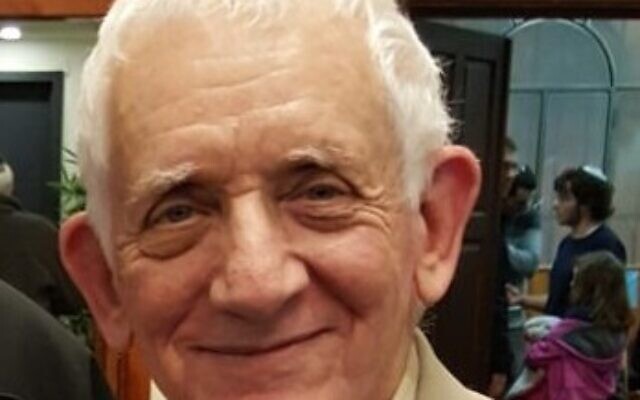Former Atlanta Rabbis in Israel Speak Out About Government
New poll shows Israelis are concerned that the opposing views could lead to civil war.

Congregational rabbis in Atlanta, like most American Jews, often feel hesitant to voice their opinions about Israel. After all, they are not living in Israel.
Not so for rabbis who formerly lived and worked in Atlanta, but who have since immigrated to Israel. Several contacted by the AJT express equally divergent opinions, similar to local rabbis – but in much stronger terms.
“The prospect of the Knesset passing the [Prime Minister Benjamin] Netanyahu-endorsed judicial reform bill makes me feel less safe in Israel than I felt during the 2000-2005 wave of terrorism (known as the Second Intifada),” stated Rabbi Adam Frank, who led a major Conservative, or “Masorti,” congregation in Jerusalem until 2019. He now focuses his efforts on two areas of social activism: fighting against the monopoly of the Israeli Rabbanut (rabbinic authorities) on matters of Jewish life cycle and kashrut, and animal welfare.
According to Frank, “Not only will the judicial reform bill allow the most zealous government in Israel’s history to unilaterally dictate rules and enforcement, [but] the looming enactment of the bill has already eroded the sense of unity Israelis feel when confronted by an external enemy. The recent murder of seven Israelis outside a synagogue in Jerusalem gave almost no pause for unity of Israel’s citizens because over half of the country feels threatened by the current government.”
He claimed that “by naming their party the ‘Religious Zionist Party,’ leaders Betzalel Smotrich, Itamar Ben-Gvir, Avi Maoz and others have smeared the reputation of religious Zionists. A friend tells me he wants to make a T-shirt that reads: I am religious. I am Zionist. I am not a Religious Zionist.”
Although the current Israeli government, sworn in at the end of 2022, is considered the most right-wing in the country’s history, of the numerous proposed changes the Netanyahu government is endorsing, a proposed overhaul of its judicial system is attracting the most attention, both within Israel and in the rest of the world.
In a nutshell, the proposals suggest an overhaul aimed at limiting the powers of the country’s judiciary, including by allowing the Knesset, or legislature, to pass laws that Israel’s Supreme Court has struck down. The reforms would also give politicians more power over how judges are chosen – including on the Supreme Court – and limit the independence of government legal advisors.

Even strong supporters of Israel and Netanyahu, like noted lawyer Alan Dershowitz, have condemned the proposed changes, saying that they pose a threat to civil liberties and minority rights in Israel.
In an interview with Israeli Army Radio, Dershowitz said, “If I were in Israel, I would be joining the protests.”
He was referring to the weekly Saturday night protests that have brought tens of thousands of Israelis to the streets, not just in Tel Aviv, but in Jerusalem, Haifa, Modi’in, Beer Sheva, and elsewhere. In addition to those mega-protests, various groups and industries, including doctors in their white coats, high-tech employees during the middle of their workdays, students, army reservists, agricultural workers, lawyers and others have gathered in protest against the proposed judicial changes.
Protest organizers plan a nationwide worker strike as well.
A growing number of Israeli high-tech companies have announced that they are transferring their funds out of Israel because of predictions that investors from abroad will slow, if not halt, their investments in the country. Economists in Israel, and banks and credit rating companies abroad, have all warned that the proposed judicial changes will create an unstable and uninviting environment for business.
Rabbi David Geffen, who made Aliyah in 1977, said, “I can only look from afar because I am 84, too old to do anything…[but] the way it sounds, Israel will be challenged by the financial institutions of the world especially because of Israel’s judicial changes. If those challenges become real, then Israel will suffer.”

Not every former Atlanta rabbi has the same concerns. Citing the protesters’ fears for the future of the country’s democracy, Rabbi Emanuel Feldman stated, “There was no coup d’état. There was an election, the rightists won, the left-liberals lost. The cries of the losers, incited by the leftist media, are not about loss of democracy, but about their own loss of power.” Feldman, who helmed Orthodox Congregation Beth Jacob before he immigrated to Israel in 1991, contends that “Israel remains vigorously and fully democratic.”
Former Congregation Or Hadash Rabbi Mario Karpuj, who made Aliyah with wife, Rabbi Analia Bortz, in 2020, acknowledged that he’s concerned about the proposed judicial changes.
“I love that the society has been outspoken and taken to the streets. It’s hard from America to grasp what’s happening here.” He suggests that 100,000 protestors in Israel would equal in the millions in the U.S. So far, he hasn’t joined any of the protests, although his wife, daughters and friends have. His everyday life, however, feels unchanged and non-political, he said.
But according to a recent poll commissioned by the Jewish People Policy Institute, the differences of opinion among Israelis about the direction of the new government could lead to a civil war. Sixty percent of Israelis believe there’s a good likelihood that the struggle over the proposed judicial reforms could turn violent. More than a third fear a civil war could result.

Rabbi Frank, who lives in Jerusalem with his wife, Lynne, and three children – the oldest of which will enter the army in August, said, “Despite the hard-right composition of the current Israeli government, the large majority of Israelis are opposed to the judicial reform bill, endangering the rights of minorities, women and the LGBTQ+ community; the economic and educational concessions to ultra-Orthodox demands; and the draconian religious monopoly of the Israeli Rabbanut. The pursuit of justice is not an aphorism in Israel – it’s in our DNA.”
He added, “As an American living in Israel, from afar I witnessed the destructiveness of the last six years of U.S. politics, upon the fabric of American society, whereby patriotism no longer seems to unify U.S. citizens. If the current Netanyahu government does not change course and govern on behalf of all Israelis, then Israel will suffer a similar destruction. I do not entertain living anywhere else but Israel; to live elsewhere means that the future of Israel is not a priority. To live elsewhere means that I condone, or even accept, others determining the character of the country.”
- Israel news
- politics
- Jan Jaben-Eilon
- Knesset
- Netanyahu
- Second Intifada
- Rabbi Adam Frank
- Masorti
- rabbanut
- Religious Zionist Party
- Betzalel Smotrich
- Itamar Ben-Gvir
- Avi Maoz
- Zionists
- Supreme Court
- Alan Dershowitz
- Israeli Army Radio
- tel aviv
- Jerusalem
- Haifa
- Modi’in
- Be'er Sheva
- Rabbi David Geffen
- Rabbi Emanuel Feldman
- Congregation Beth Jacob
- Congregation Or Hadash
- Rabbi Mario Karpuj
- Rabbi Analia Bortz
- Jewish People Policy Institute
- LGBTQ



comments